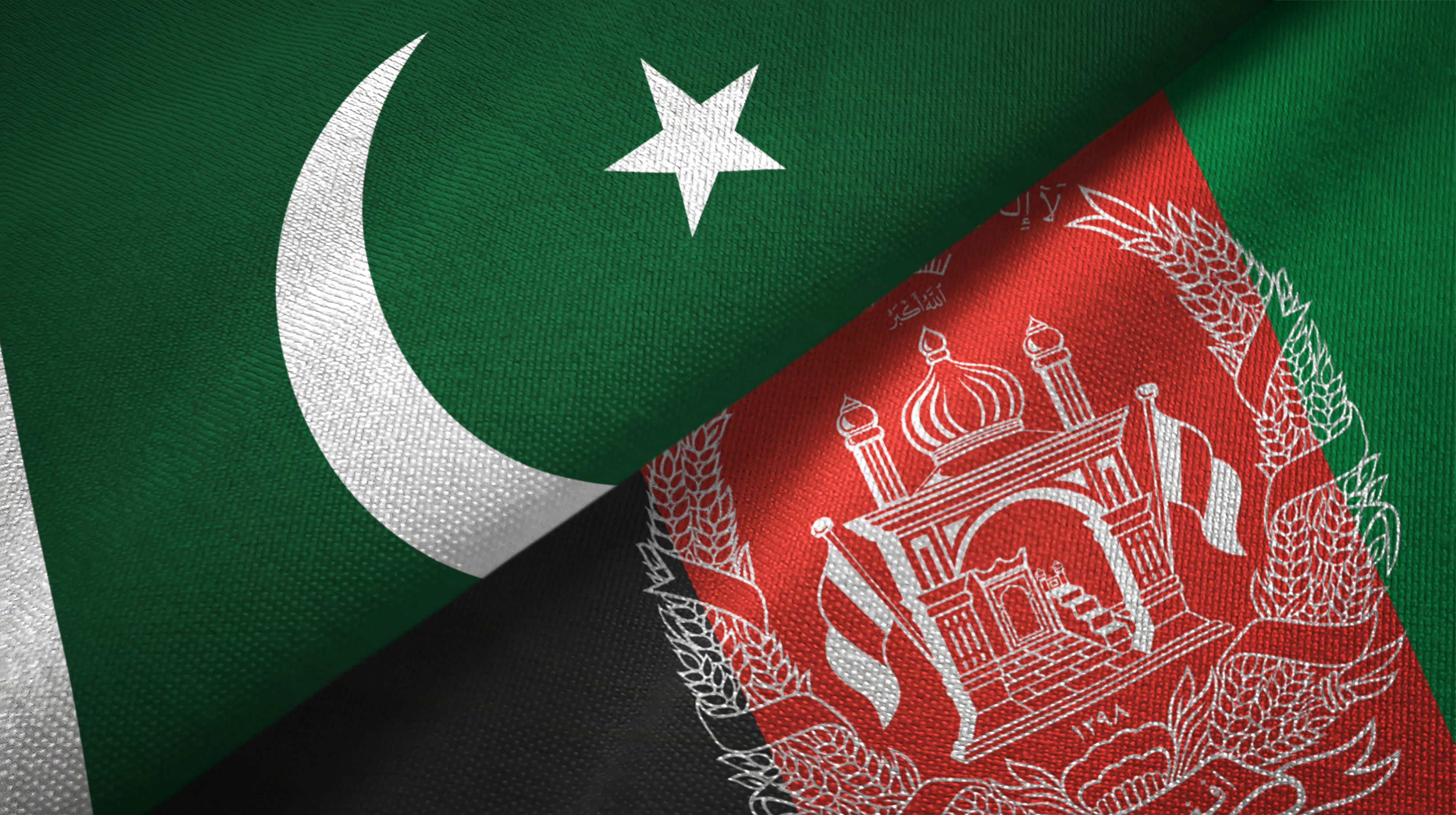
Pakistan and Afghanistan flags.
Credit: iStock Photo
Islamabad: A close aide of Afghan Taliban supreme leader has held talks with Pakistani authorities, including caretaker Foreign Minister Jalil Abbas Jilani, here and discussed key issues of mutual concern, including peace and security, amid simmering tensions between the two countries over the cross-border terrorism.
Haji Mullah Shirin, Governor of Kandahar and Deputy Head of Military Intelligence and Strategy of Afghanistan, who is a key figure in the Taliban’s secretive hierarchy, is the first senior Taliban leader to have travelled to Islamabad in recent months.
According to a statement by the Foreign Office, the delegation met Foreign Minister Jilani on Wednesday. 'They exchanged views on key issues of mutual concern, including peace and security, as well as people-to-people contacts,” it said.
Jilani reaffirmed Pakistan's commitment to continued engagement and mutually beneficial ties with Afghanistan. He also underscored the importance of addressing all issues of concern to harness the full potential for regional trade and connectivity.
The visiting dignitary appreciated Pakistan for the generous support extended to millions of Afghans for over four decades and agreed to continue high-level engagement and dialogue to further strengthen bilateral relations.
Earlier, the Afghan delegation led by Haji Mullah Shirin also participated in the 6th session of Pakistan-Afghanistan Joint Coordination Committee, where the two sides discussed coordination mechanisms to facilitate cross border movement with a view to promoting people-to-people contacts, according to the statement.
The visit comes as relations tumbled between the two neighbours over the issue of militants of banned Tehreek-e-Taliban Pakistan (TTP) using Afghan soil to conduct militancy.
Pakistan has repeatedly alleged that the TTP militants have been using the latest weapons left by the NATO forces in Afghanistan in the attacks against its security forces which they could only get with the help or connivance of officials in Kabul. It also says that TTP leaders freely live across the border in Afghanistan and cross the border at their will to orchestrate attacks.
The Pakistan Institute for Conflict and Security Studies in a report stated that the country's security situation is the same as in 2014. According to the report, there was a 93 per cent increase in the rate of suicide attacks across the country last year.
The banned outfit, TTP, recently released its attack figures, saying it carried out more than 60 attacks in Pakistan in the last year of December alone.
Flustered by the lukewarm response by the Afghan Taliban to tackle the incursions by the TTP, Pakistan last October announced to expel all about 1.7 million Afghan living illegally. The interior ministry this week told the Senate that so far more than half a million Afghans have been sent back in the drive against illegal aliens which was launched in November.
Officials said that the issue of TTP and illegal Afghans were prominent in the talks held by the Afghan delegation, besides trade issues and opening of new border points for Afghans.
“But any quick fix of the issue of TTP is not likely anytime soon due to lack of trust between the two sides,” an official said, adding that the visit was still important due to Mullah Shirin’s links with Taliban supreme leader Mullah Haibatullah Akhund.
Pakistan hopes that Shirin, being a confidante of Akhund, would help to convey its concerns directly to the Taliban supreme leader.